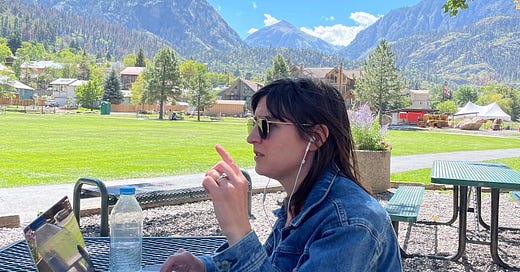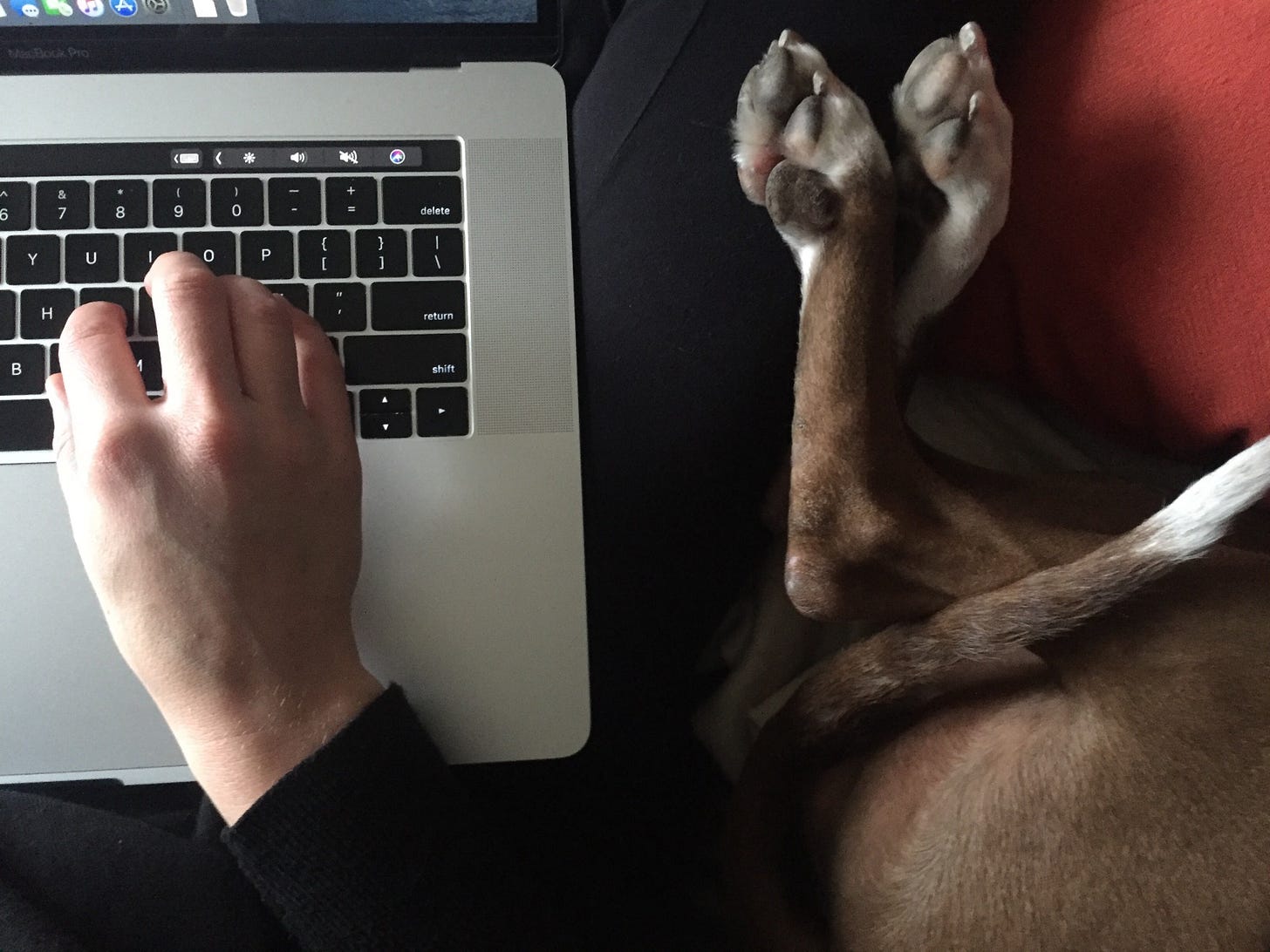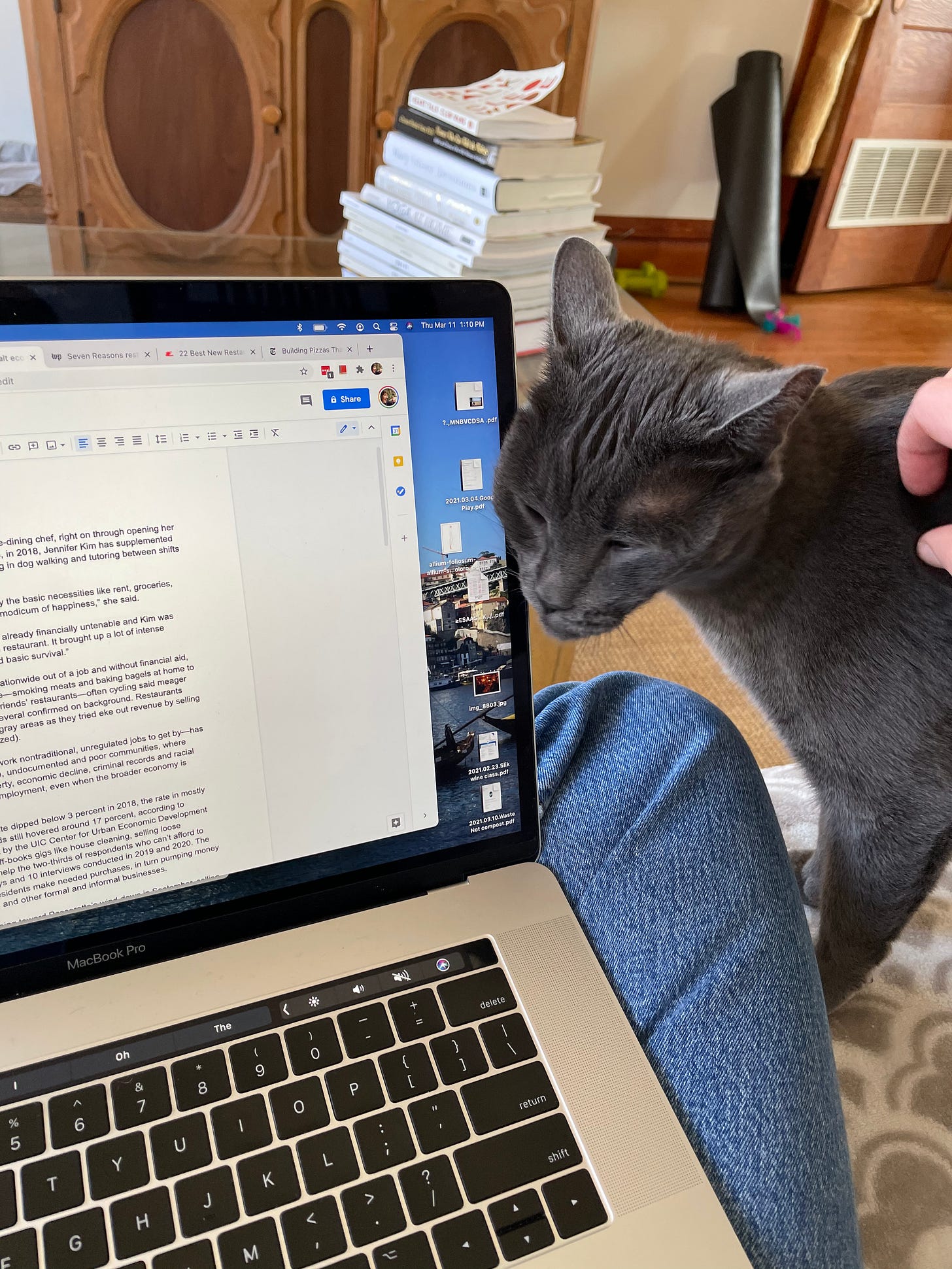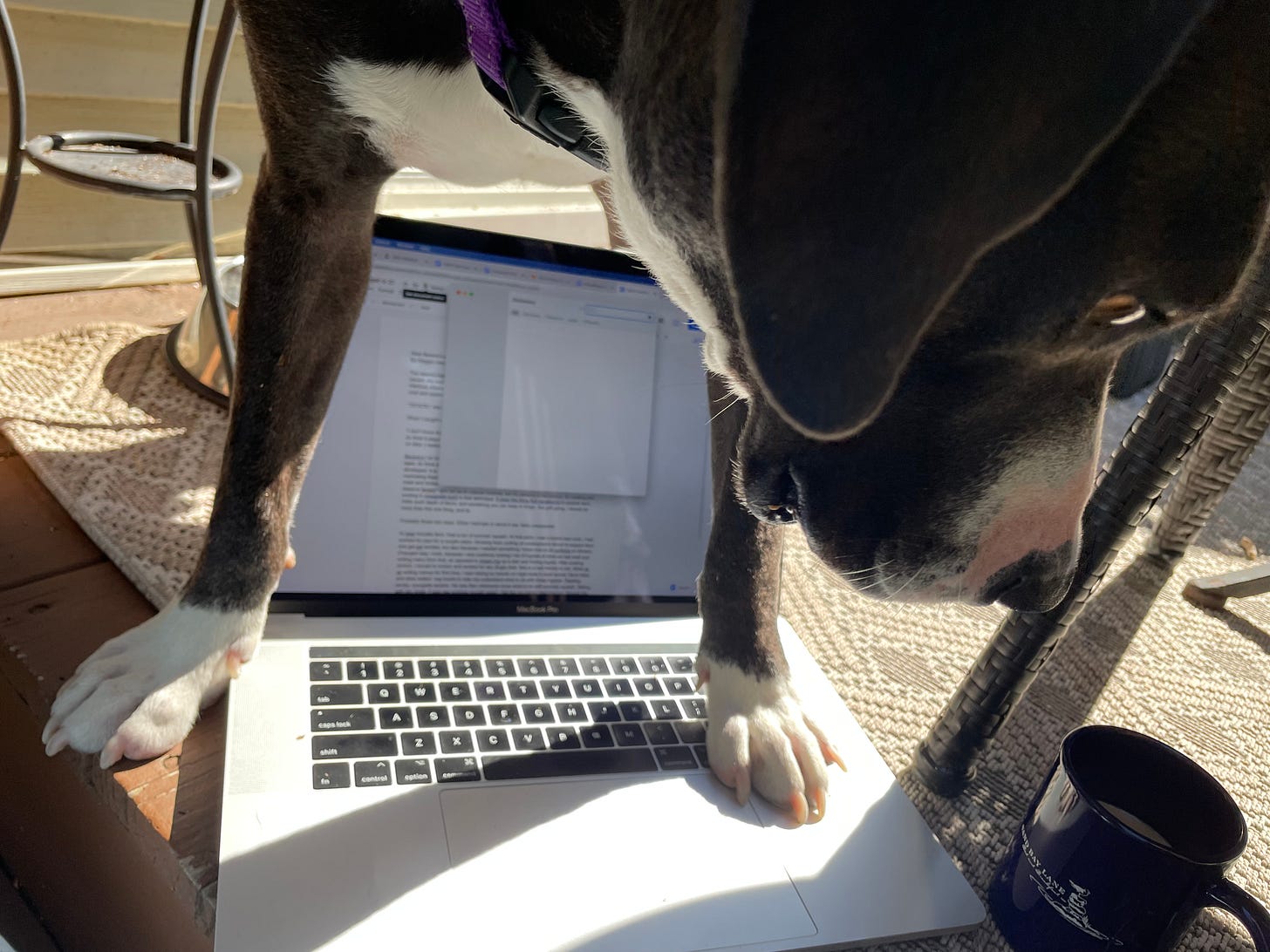I started this Substack as a place for the whimsical and fun nonfiction storytelling I don’t always get to do in my day job as a freelance food and drink writer. Yet as I doggedly attempt to cobble together a living from the latter, it’s become increasingly obvious to me that people have no idea what quality writing necessitates, much less what it pays (spoiler: I make $20 per hour at some national publications). People see my byline in a couple of places and assume I’ve achieved some kind of financial success, which is untrue.
So today I want to take you through what my process looks like and how I typically get compensated for it. The goal is not simply to reinforce that writing is in trouble (which it is), but to shed some light on what the work actually takes. I am so proud to be a journalist and storyteller at the fluffier, lifestyle end. Writing is a fascinating, enriching job that demands empathy and critical thinking, self-love and self-loathing in equal parts. I love the editors I work with, who are smart, kind and fearless—and often given insufficient time and funds themselves to churn out great work. Knowing this, I’m discouraged by how easy people find it to personally attack the character of writers and editors with so much confidence and so little viable information—in my case, degrees in journalism and professional cookery, plus 15 years of experience. (Yes, I’ve been trolled before; it’s as unnerving as it is laughably pathetic.)
I hope that by reading this, you’ll appreciate the singular creatures who undertake this profession in a landscape that’s increasingly hostile to them.
I regularly freelance for a handful of publications (as in, at least once a month but often more). Generally, they’ll pay me a previously agreed-upon flat fee per story, which ranges from around $1,000 to $250. These stories vary in length and depth. Some comprise a voicy essay I can knock out in two hours because I have strongly developed FEELINGS. Others require two or three interviews (which I transcribe) and some background reporting, like reading peer-reviewed studies or rifling through the New York Times and city paper archives for past coverage of a topic.
Some publications pay per word, which runs anywhere from $1 to 25 cents. (I recently saw one food publication issue a freelance writer callout, dangling 8 dreadful cents per word.) Depending on the meatiness, length and lift of the piece, the per-word structure can work in my favor. But don’t forget that in both of the aforementioned fee structures, I don’t get paid for the editing phase of the process, which can include rewrites (sometimes extensive), additional interviews and reporting before stories are finally published.
I also write monthly restaurant reviews for a flat, per-story rate, plus sufficient dining budget to experience the restaurant once, usually with a date or two (plus cab fare home if needed). For restaurants that require heavier lift because I’m unfamiliar with the cuisine or didn’t get a good enough representation on a single visit, I’ll go a second time on my own dime. I never accept comped invites from PR agencies, in-house marketing teams or the restaurants themselves. Because I’ve been doing reviews for a while, I can generally write them in a few hours (plus the time spent dining and getting to and from the spot). I often have follow-up questions, which sometimes requires an email or phone interview—aka another 30 or 45 minutes of my time.
Beyond fees that vary wildly, it’s worth mentioning that very few publications have sufficient budget to cover meals at restaurants I’m writing about. If I’m lucky, I will have already eaten there. If not, I almost always end up going and paying my own way, meaning I can write off a portion of the bill for taxes, but that’s about it. (Fortunately, I really, really like going out to eat.) By the way, the same generally goes for the ingredients I buy to test the recipes I (rarely nowadays) write.
Are you starting to see the problem?
Imagine trying to capture the crackling energy of a restaurant dining room; the multifaceted character of a chef; the intoxicating visceral (or flabby and disappointing) details of the food through a 30-minute phone interview! Better to drive there (whose mileage I can, once again, write off next April) or take public transit to the restaurant, where I will almost always spend longer than planned for the interview because it took a little longer for the subject to open up, or because the owner had to deal with a broken dishwasher, or because there was a rush, or because entiendo español mejor de lo que hablo. If the restaurant was closed during the interview, I have to go back again to eat, effectively doubling my time, and with—don’t forget!—limited to no publication-supplied dining funds.
All of that is to say, can you blame a writer who’s been promised a one-time, $400 fee for just sticking with a phone call or email interview, or accepting the occasional media dinner invite because they’re writing a trend story about a culturally significant tasting menu restaurant that they can’t afford to eat in?
I do take on occasional special projects—like sponsored content for magazines, newsletter takeovers for independent brands or articles for brand-owned magazines. But on the whole, to make this job work, my time becomes currency. The more successful pitches I can send (unpaid labor!) and pieces I can reasonably crank out in less time, the more money I pocket. I benefited immensely from a formative job as a reporter at an online daily news site where I was responsible for two stories a day, so I got faster at transcribing interviews out of necessity. Usually I get the bulk of quotes I need transcribed during the interview itself, then I revisit recordings for details and better understanding of complex topics.
In many ways, this very story is an indictment of my process, and of structuring one’s life around the unprofitable craft of writing and editing. I gave almost a decade to unsatisfying staff writing and editing jobs before finally taking the freelance plunge, which is partly why—even on the darkest days—I’m not sure I’d give this up. I’m fortunate have the financial support of a partner who believes in my work and whose job offers solid healthcare coverage for both of us. We don’t and aren’t planning to have children, save for the squishy rescue dog we will eventually adopt when we move into a dog-friendly apartment. I am, however, planning to continue writing (and getting compensated for!) my silly little stories long after he retires.
Yes, there’s a lot wrong with publishing, and there will always be writers who take shortcuts or exploit available perks (which honestly aren’t as good as a steady fucking paycheck). But there are just as many who do this work because they love and believe in it, full stop. So if you love to read, if you’ve ever felt changed—even a quarter of an inch—by a piece of written storytelling, if you care about truth-seeking, holding the powerful to account, and the survival of your city or town’s written histories, please support writers and journalists. Buy a subscription to your local newspaper or favorite magazine and take the time to get to know and follow its writers. (Maybe one of them has a book coming out that you can buy from an independent bookstore.) Donate to a nonprofit news organization, or consider a paid subscription to your favorite writer’s Substack.
Don’t just say you will; act on it. Consider what we’ve already lost.








Thank you (and proud of you) for writing and publishing this. I know it wasn't easy, but you are saying and feeling what so many in this field think, feel, and say every damn day. The industry has been in a tailspin for years and it just continues to get harder to cobble together a decent living.
To be a journalist/writer is to love telling stories and you, my friend, are one of the best storytellers around. Thank you for your voice. Thank you for your perseverance. Thank you for speaking your truth. Thank you for being you.
(and I hope you get more paid subscribers out of this. you deserve it. 🤗)
Great piece. I’ll add to the transparency. I never made more than 40k in any given year as a full time food freelancer. I could have I suppose done corporate work etc to boost but wanted to focus only on food. If I’m gonna do corporate work I’ll do more lucrative corporate work with full benefits and make food my side gig as I do now.
One thing I do want to comment on tho is the assertion that publications don’t have sufficient funds. It’s true they don’t pay well but that’s because they took advantage of freelancers who didn’t understand or protect their value.
Trib is owned by a hedge fund
Time Out has the capital to invest millions in food halls
Condé Nast pays millions to executives and editors
Infatuation is owned by JP Morgan Chase
Vox had 600 million in revenue in 2022, tho reportedly down by 15% in 2023.
Etc etc
Yes the advertising models suck and revenue has declined no doubt. But the problem is all the overhead. That’s why agile orgs like say Block Club can succeed because they realize the investment is writers and reporters not in car service of huge salaries for their executives.
I do have empathy that if one is committed to do this thing it’s really hard not to accept the lower pay and just get on with it. I did it myself for a long time.